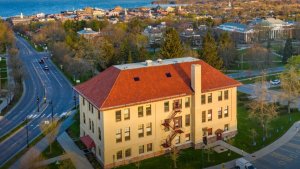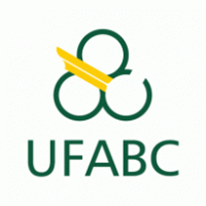
Over thirty organizations are partnering with the Building Climate Solutions conference to engage participants in new and ongoing initiatives that advance solutions to climate change. The four initiatives highlighted below are particularly excellent opportunities wherein participants like you can engage during the conference and beyond.
Applying an Ecosystems Framework for Adaptation
Session organized by:
A Community on Ecosystem Services
This part of the conference will address key issues relating to application of an ecosystem services (ES) framework to address climate change adaptation – benefits and challenges; methods and tools; and institutional issues and constraints. It aims to develop a strategy for moving forward with this integration between ES and climate change adaptation.
Scientists and resource managers with representatives from government, academia, NGO’s, and the private sector will address developing an operational approach for integrating an ES framework with climate adaptation strategies.
As an outcome, a new Ecosystem Services and Adaptation Project will begin at the conference, will continue throughout 2014, and will be reported on and discussed at the ACES (A Community on Ecosystem Services) Conference in Washington, DC, December 9-14, 2014.
Speakers:
- Bill Hohenstein, USDA Climate Change Program Office
- Melissa Kenney, USGCRP
- David Ervin, Portland State University
- Jim Boyd, Resources for the Future
- Mark Shaffer, U.S. Fish and Wildlife Services
Food Security and Climate Change
Session organized by:
U.S. Department of Agriculture
Climate change will impact the main elements of food security – availability, access, nutritional, and stability – directly, as well as through changes in weed, pest, and disease prevalence and ranges. The U.S. agriculture sector is also likely to experience effects on its productivity and competitiveness.
A U.S. Department of Agriculture report for the National Climate Assessment process seeks to examine how a changing climate may affect global food security today, in 25 years, and in 100 years.
This conference track will develop guidance to refine the scope and content of the report and produce a report that is more useful for decision-makers across the relevant sectors. It will also advance a richer dialogue within the food security community about what sorts of solutions the science of climate change can provide them.
Speakers:
- Molly Brown, NASA
- Anthony Murray, USDA
- Bill Hohenstein, USDA
- Margaret Walsh, USDA
- Peter Backlund, University Corporation for Atmospheric Research – National Climate Assessment
Preparing U.S. Agriculture to Manage Climate Change Risk
Session organized by:
Cornell University and U.S. Department of Agriculture
There is an urgent need to communicate climate change science and solutions to various groups within the agricultural sector who can take more aggressive action to reduce greenhouse gas emissions and prepare for climate change impacts. Effective networks and partnerships will help the U.S. agricultural sector adopt effective adaptation measures quickly to manage the effects of climate change, minimize costs, and capitalize on emerging opportunities.
This track will explore the experiences of research and cooperative extensions, U.S. government regional initiatives, and corporate and NGO partners to help build effective climate change partnerships and networks for agriculture. Targeted outcomes include:
- creating a more cohesive community of practice;
- developing recommendations to strengthen existing networks; and
- creating a white paper and/or published peer-reviewed paper of the findings and recommendations.
Speakers:
- Mike Hoffmann, Cornell University Agriculture Experiment Station
- Bill Hohenstein, USDA Climate Change Program Office
- Matthew C. Larsen, USGS
- Lois Wright Morton, Iowa State University
- David Gustafson, Monsanto
- Allison Chatrchyan, Cornell University ICCA
- Robin O’Malley, U.S. Department of Interior Climate Science Centers
- Caitlin Simpson, NOAA CSI/RISA Program
- Keith Tidball, Cornell University EDEN
- Luis Tupas, USDA NIFA, Division of Global Climate Change
Managing Marine Fisheries in a Changing Climate
Session organized by:
U.S. National Oceanic and Atmospheric Administration
Globally, an estimated 1.5 billion people depend on marine fish as a primary food source. With a changing climate and changing oceans, new tools and approaches may be needed for effective fisheries management related to:
- changes in ecosystem productivity/fish abundance,
- changes in distribution of fish stocks and fishers,
- changes in interactions with non-target species (bycatch), and
- changes in habitat use (e.g., shifting nursery grounds).
Participants will identify tools/actions/collaborations to develop and test new approaches or ongoing efforts. Outcomes will include:
- input for on-going efforts of the NOAA Fisheries Service to prepare for and respond to changing climate and ocean conditions in fisheries management
- suggestions of best management alternatives for NOAA Fisheries Service staff to consider that are needed by regional managers to effectively tackle this issue
Speakers:
- Jason Link, NOAA National Marine Fisheries Service
- Andrew Pershing, Gulf of Maine Research Institute
- Gretta Pecl, University of Tasmania
- Heather Deese, Island Institute
- Bill Tweit, North Pacific Fisheries Management Council
- Sonke Mastrup, California Fish and Game Commission

For more information click here.
Please direct all inquiries to conference@ncseonline.org.







